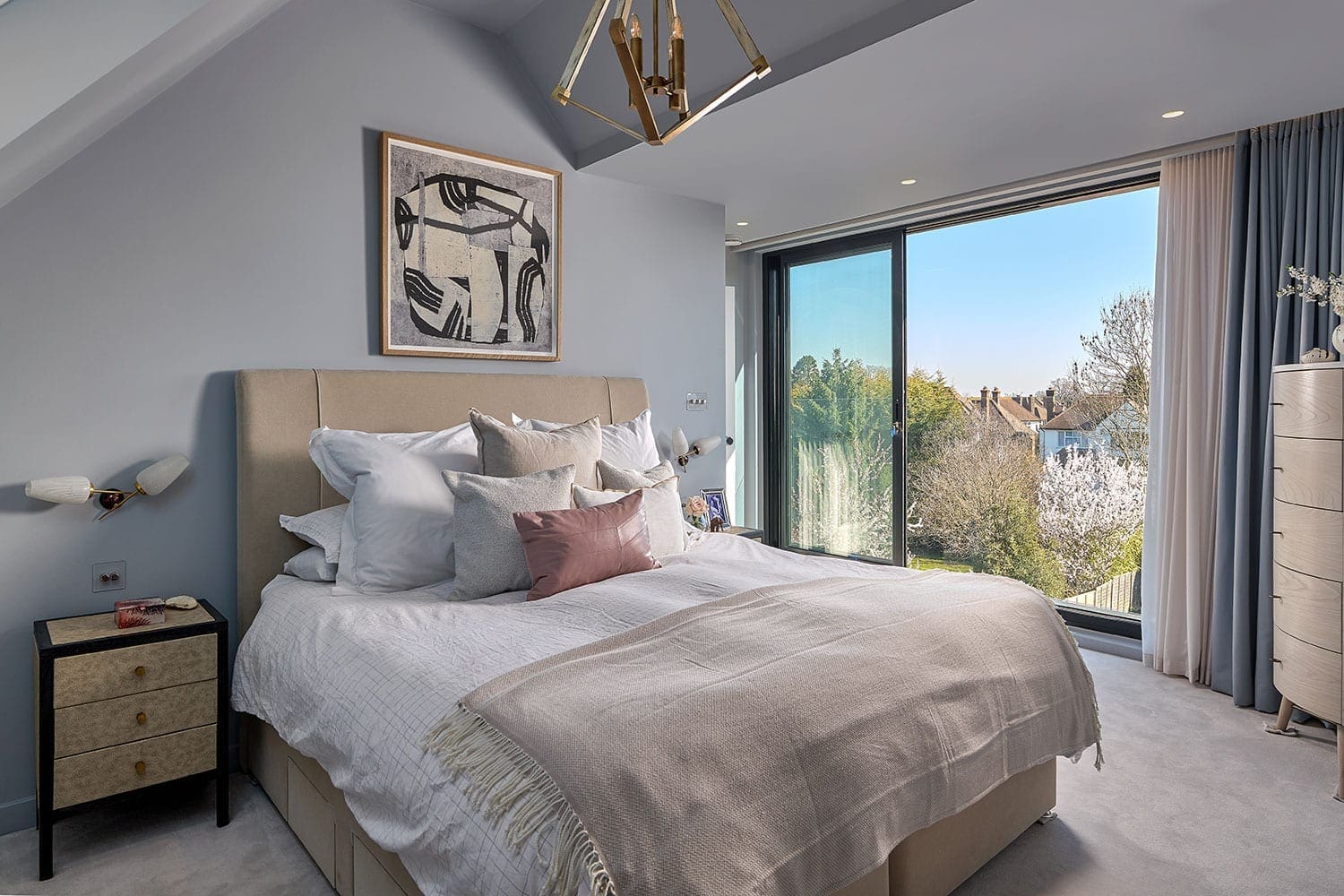Staying put: making the most of your home

There are many different reasons why you might be looking for more space in your home. Perhaps you have a growing family, need more storage, dream of an at-home office — or simply want to make the most of the potential your property has to offer.
When you are looking for more space, there are two main options at your disposal: move home, or extend your existing one. Although moving might seem like the simplest solution, in reality, the prospect of uprooting can be daunting and off-putting enough to make you stay put and tolerate that shared bedroom or makeshift desk a little longer.
An extension offers you the best of both — transforming your existing space into something more practical AND adding value to your home in the long term. So, if you need a fast solution to your lack of space, an extension could be the best option for you.
When is an extension the right move?
Despite yearning for more space, you may be reluctant to leave your current home. For example, if you live within the catchment area of excellent schools, it may seem rash to sacrifice what you have for the sake of an extra room — especially if your children are settled where they are.
Plus, it is worth considering whether you will be able to find something better for your money in the current market, with house prices skyrocketing in recent months as a result of other home seekers engaging in the ‘race for space’ in the wake of lockdown. September saw the strongest rise in house prices in 14 years, pushing the cost of a new home to record highs.
With that in mind, it may be counterintuitive to look for greener pastures if you are already based in a desirable location — particularly if you are in a more rural area. Instead, investing in your property could be the most cost-effective and efficient way to extend your living space.
Many are often put off by the financial and time implications of an extension project. However, the right type of conversion will be considerably less disruptive than moving, more cost-effective and likely take less time!
Moving house can take far longer and provide costly, with many more elements to juggle — including viewing and securing the right property, paying agency fees, selling your own home, packing and unpacking, renovating and more. And that is assuming the whole chain does not fall through mid-sale!
Which type of extension is right for me?
The estimated basic price of an extension per square metre is £1,100 to £1,400, but costs will vary depending on the scope of your project. Plus, research has found that improvements to the average three-bedroom house can add up to 23% to the value of your property.
Ensuring your extension is durable and well-built is essential; otherwise, you will risk compromising the value of your property and face the cost of long-term repairs. Extensions also often require planning permissions and building surveys, so hiring a trusted professional to guide you through the process is always worthwhile.
Single and double-storey conversions
A single-storey conversion is usually situated at the rear of the property to connect the home with its garden. This extension offers the opportunity for light, spacious living areas with the benefit of only extending one floor.
On the other hand, double-storey conversions may be trickier to get approval for, as they extend over two floors and risk obstructing the light and view access of surrounding homes. However, this type of transformation can enlarge multiple rooms or even create new ones once approved.
Garage conversion
Garage conversions are another popular way to create space within properties, with the benefit of retaining garden space. Detached garages may require planning permission but can be used as an extra living space, office or gym. For garages attached to homes, a garage conversion could become a kitchen extension, an additional bedroom or simply much-needed storage space.
Basement conversion
In areas like London, where space is at a premium, a basement conversion becomes a selling point for potential buyers and could add between 10% and 20% to the value of your property. A basement conversion allows you to add space without impacting the exterior of your home. But it might take longer and become more disruptive than other extension projects due to the need to excavate should a basement and foundations not already exist.
Conservatory
The cost of a conservatory extension is relatively minor compared to other options at an average of just under £9,000. These extensions only take a couple of weeks to complete, freeing up space for entertaining, working or relaxing under plenty of natural light. However, conservatories can often be inconsistent in temperature, meaning you are unlikely to enjoy using the space during winter or summer.
Loft conversion
Loft conversions are often possible within existing footprints with all the benefits of other extension types, providing the ultimate value for money.
Whether you are simply converting an existing space with a Velux window or carrying out a more extensive Mansard extension, loft conversions are an accessible and popular option for creating more usable space (often without the need for planning permission!). Plus, unlike other types of extension, a loft conversion only takes between six and eight weeks to complete, and contractors can carry out their work from the outside to minimise disruption.
If you are happy with everything but the size of your home, why go through the added stress of moving house? Get in touch to talk to us about your loft conversion project and arrange a free, no-obligation estimation.